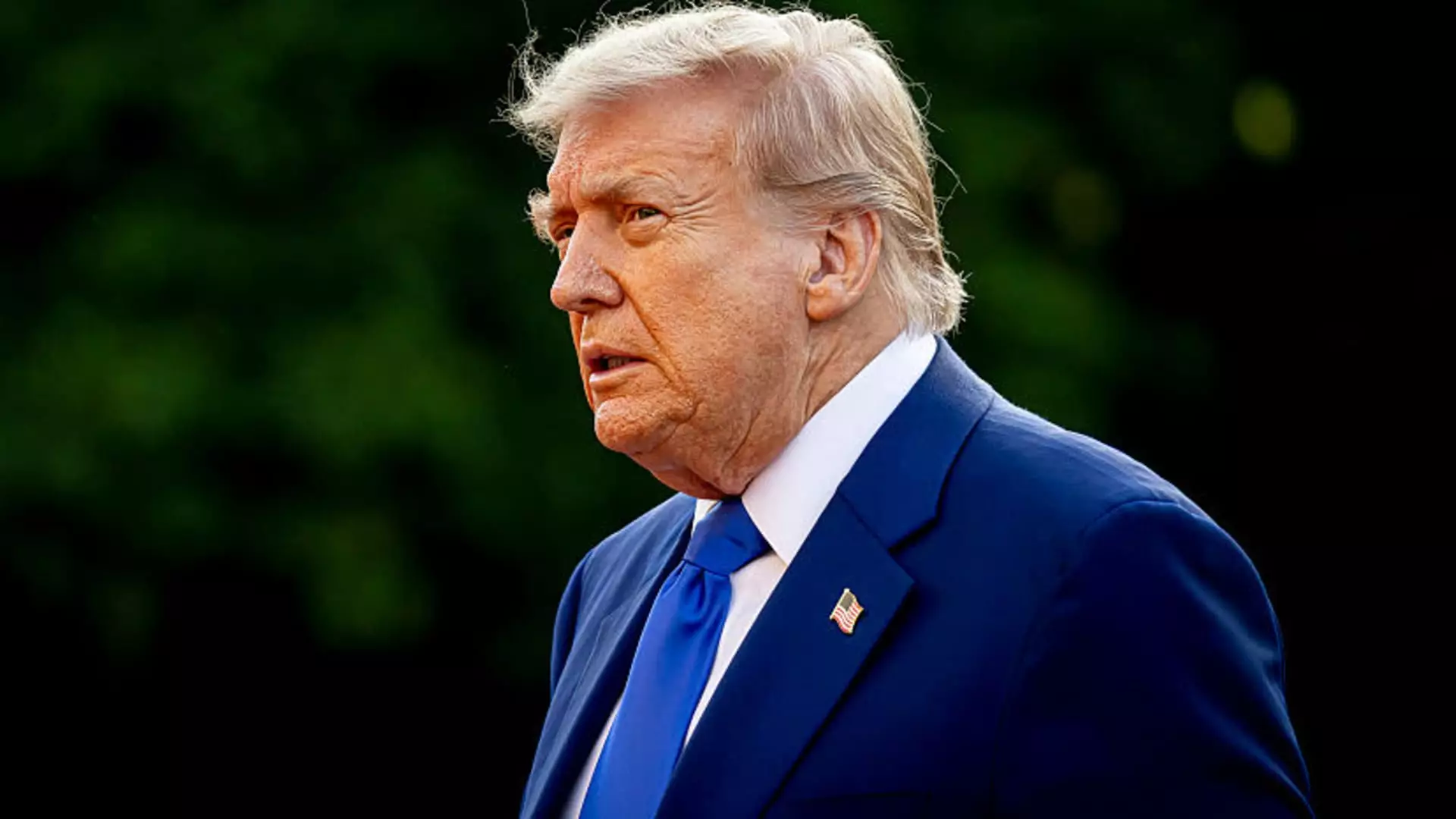In the unpredictable realm of global trade, one fact remains indisputable: deadlines are often more fluid than they appear. President Donald Trump’s administration has recently highlighted this reality, suggesting that the previously established deadlines for trade deals are neither fixed nor particularly significant. Press Secretary Karoline Leavitt’s astute assertion that “the president can simply provide these countries with a deal” serves as a stark reminder of how Trump’s approach flouts conventional diplomatic norms. Instead of adhering to negotiations based on mutual respect and reciprocity, the Trump administration seems to thrive on the whims of presidential proclamation.
The idea that a deadline “is not critical” speaks volumes about an administration willing to prioritize tactical flexibility over rigor in trade negotiations. While some may argue that this kind of approach allows for a more dynamic adaptation to the economic landscape, it also embodies an alarming inconsistency that can cripple economic relationships with international partners. Trade is not merely a transactional endeavor; it requires trust and predictability—qualities that could rapidly erode under the pressure of arbitrary extensions.
Tariffs: A Double-Edged Sword
Trump’s propensity for utilizing tariffs as a negotiation tool has been both unsupported and bold. His previous threats to impose a jaw-dropping 50% tariff on the European Union were counterbalanced by his willingness to negotiate, as evidenced by the extension that followed European Commission President Ursula von der Leyen’s plea for time. However, this raises an unsettling question: if a leader can so readily pivot from an aggressive stance to amicable negotiations, what assurances can trading partners possess regarding long-term strategies? The whiplash of Trumpian tariffs can lead to instability not only within the United States but also ripple throughout the global economy.
The concept of “reciprocal tariffs,” which were introduced as a blanket 10% rate on nearly all countries, has yielded a semblance of predictability but comes with its own set of complications. The expiration of this 90-day tariff pause elicits anxiety among economists and businesses alike, as they grapple with the implications of potential rate increases. The idea that the president could revert to higher tariffs at any moment adds an additional layer of unpredictability, burdening businesses with uncertainty and hampering investment strategies.
Good Faith Negotiations: An Uncertain Criterion
One distressing element of the current dialogue around trade is the subjective nature of “good faith” negotiations. When White House Council of Economic Advisers Chairman Stephen Miran implies that some deadlines might be extended if the engaged countries exhibit good faith, it raises eyebrows. Who sets the standard for evaluating such commitment? Leaning on subjective definitions of good faith might backfire, leading to accusations of bias or favoritism as certain countries receive leniency while others do not.
The forthcoming expiration of deadlines looms large, especially since the administration has, as of now, only successfully negotiated frameworks with major players like China and the United Kingdom. Such frameworks are far cry from substantive agreements—a point that warrants concern from those advocating for robust foreign relations. The tantalizing notion that the administration could announce a flurry of trade deals following legislative maneuvers seems overly optimistic, especially when real results have not matched the rhetoric.
A Slippery Slope of Speculation
One must approach the optimistic front presented by Trump aides with measured skepticism. The insistence that we are “very, very close” to numerous trade deals could be seen as either hopeful or as a diversion from the lack of tangible outcomes. Kevin Hassett’s projections regarding “a sequence of trade bills” provide a tantalizing glimmer of possibility, but much depends on the passage of a major tax-and-spending bill, leaving businesses and investors on shaky ground.
In a landscape already fraught with economic challenges, fostering clarity and stability in trade negotiations must take precedence. America’s global partners are navigating their own economic currents, and unsteady leadership in trade policy can lead to adverse consequences not just for the U.S. economy but for international relations as well. As the Trump administration continues down its unique path, the burden rests heavily on its ability to cultivate true partnership and trust with allies—elements that can be easily lost amidst rhetoric and tariffs.

